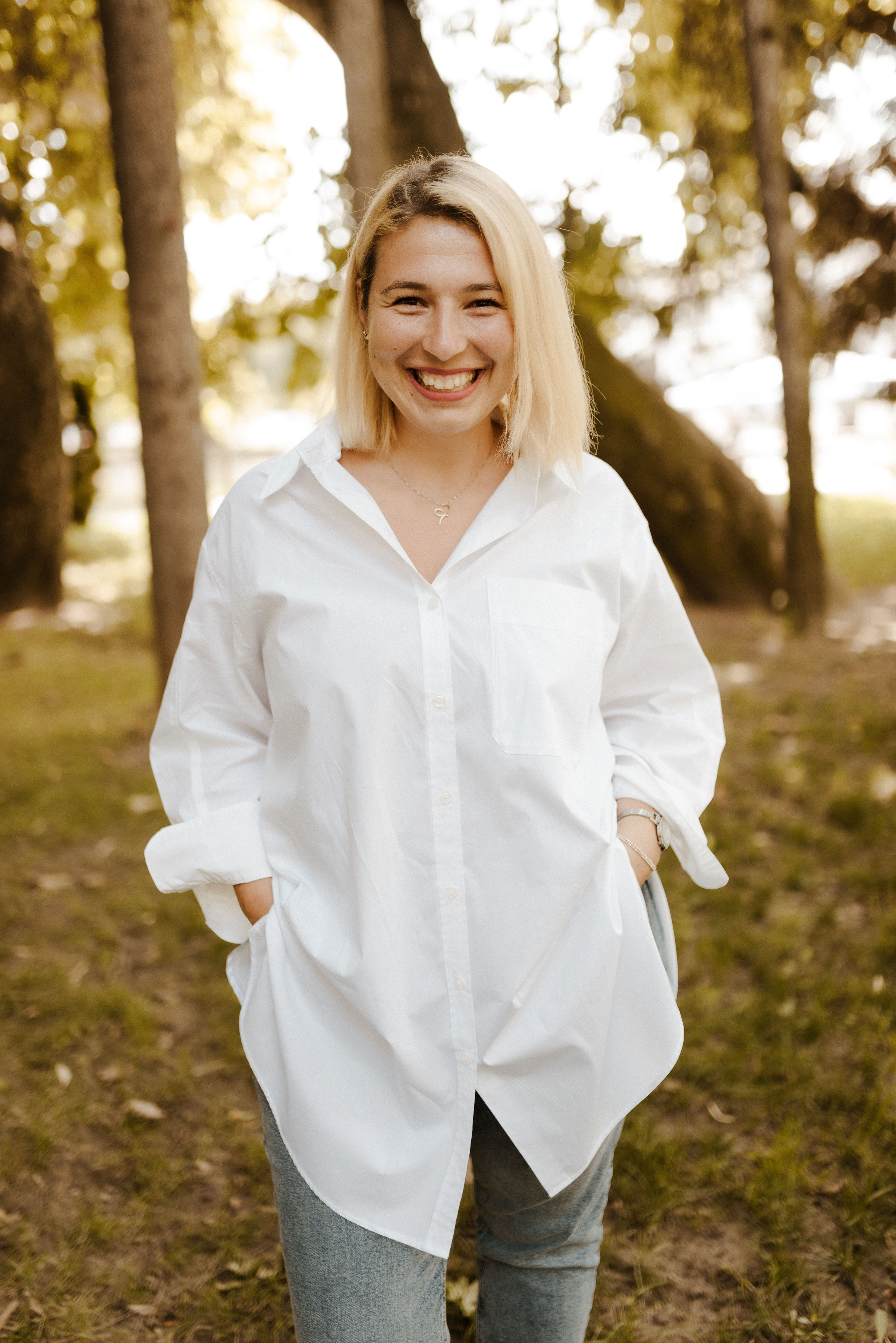'A matter of humanity'
- April 7, 2022
By Jeff Smith
Since Russia first invaded Ukraine on February 24, Adelina G. ’15 has volunteered as a first responder for Ukrainian refugees inside Romania’s border. Those who’ve known Adelina since she was a Communications student at Moody Bible Institute aren’t surprised. They describe her as a passionate follower of Christ who will serve Him however and wherever He calls her.
Today Adelina works in several ministries in Romania, including as a media planner with Ravi Zacharias International Ministries.
Adelina recently shared with Alumni & Friends Blog about her efforts to assist Ukrainians fleeing their war-torn country. (Read more about Adelina's involvement in ministry in the Moody Alumni & Friends Blog.)
Alumni & Friends: How did you get involved in aiding refugees crossing the border out of Ukraine?
Adelina: Things unfolded fast. I did not even have a chance to offer as a volunteer when I found myself among the first responders inside the country. By Thursday evening (the first day of the war) I picked up a refugee girl running away from war and trying to make her way home to Poland.
What role do you play in helping refugees leave Ukraine and find homes or shelter elsewhere?
Mainly to connect people and resources. Needs pop up all the time, and friends call other friends. Refugees seek medical help, housing, transportation. We also connect volunteers to different projects or organizations already having a system in place to help refugees. At this point, it is all about using your network to fill in where needed, be ready to pick up your phone at late hours, and always have your home ready to host.
As we’ve entered April, has the refugee situation started to decrease?
These past few days we have seen a decrease in refugee numbers, yet the danger has definitely not passed. More and more humanitarian transports try to make their way into Ukraine to provide food and other necessary resources. In the midst of the craziness, it is impressive how people come together and connect throughout the country. In these stories, we are just a link in a much, much bigger and stronger chain.
What have refugees told you about the situation in Ukraine during the war?
Most Ukrainians rush out and leave everything behind. Two refugees I had contact with literally had no time to even take the trash out, packed only a small bag, picked up in their car whoever they could, and drove on all sorts of dirt roads and bypasses as they watched the news to see what areas to avoid driving through. They reached a Ukrainian town close to the border but crossed as pedestrians because the car lines were miles long.
What kinds of emotions are refugees experiencing?
They experience a mix of feelings. I’d say anger that such things can happen in 21st-century Europe; worry because they still have family and friends blocked in Kyiv and other parts of Ukraine; shock at how rapidly things have changed and how easily your entire life can be scratched off; and guilt because they’re now safe and sound, whereas many others are not.
Why did you decide to get involved in helping Ukrainians this way?
I don’t think that it was a matter of decision for anyone but a matter of humanity. I have seen Romanians trying to be all hands on deck and help with as much as possible. Even my grandparents sent clothes and food to the refugees.
Can you share one or two stories from your work with Ukrainians that would help readers see and feel what you and they are going through?
There is exhaustion. On our end, the people most needed are either the ones living near the main borders or the ones who speak Russian or Ukrainian. On the other hand, we live an ongoing paradox. Our lives have to go on with our daily duties while war is unleashing just across the border.
We know, though, that every small gesture counts and will remain as a good memory in the midst of the refugees’ despair. They simply do not know whether they will ever be able to go back to their homes, businesses, workplaces, friends, colleagues—back to their normal lives.